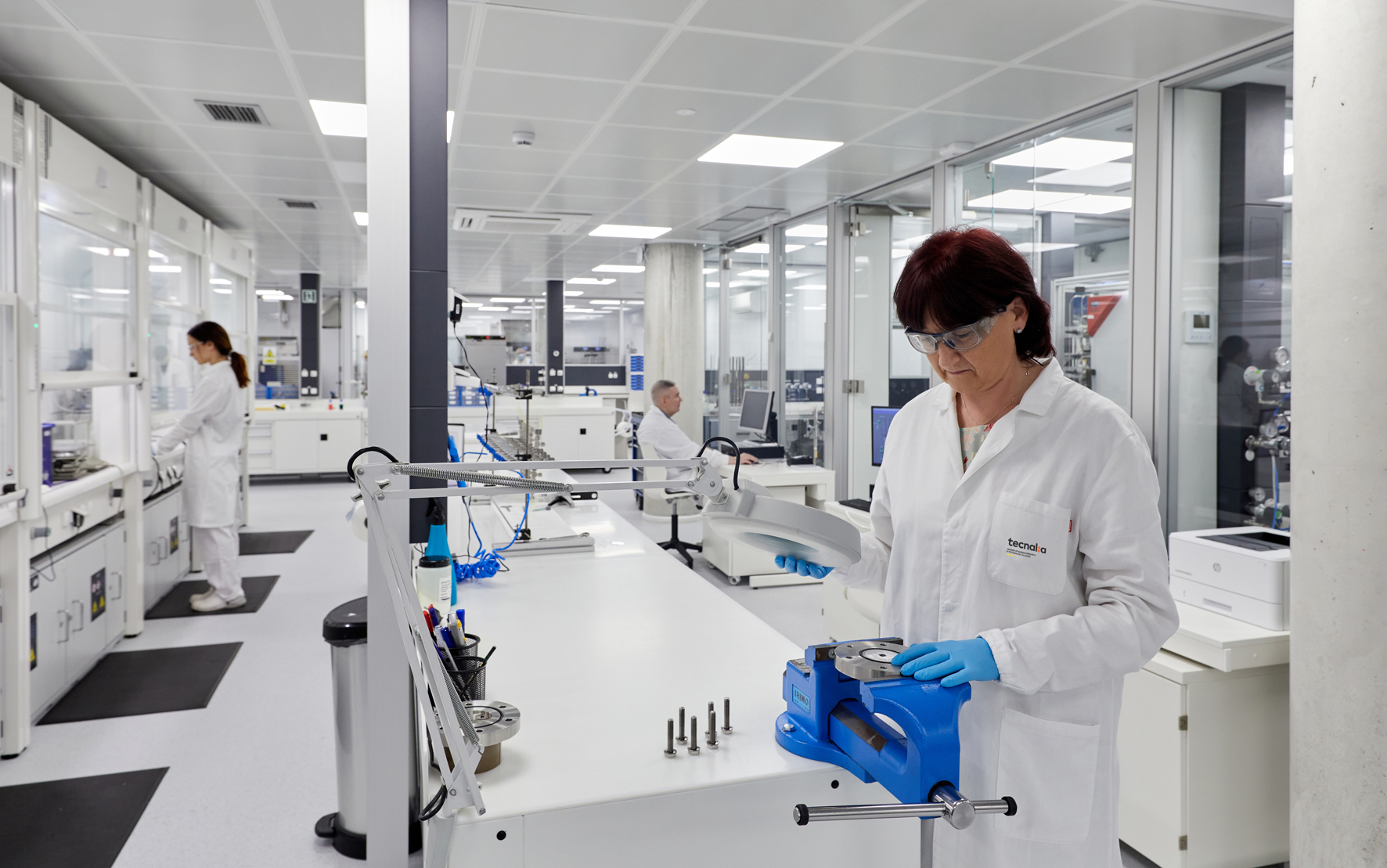Telefónica and TECNALIA to promote the digitalisation of the green hydrogen sector
- Both companies are working on a project based on the latest technologies to reduce the costs and processes of green hydrogen generation plants, which will contribute to reducing CO2 emissions into the atmosphere.
- This collaboration is part of a cooperation agreement to deploy innovative solutions related to smart manufacturing, the digital energy transition, sustainable mobility, personalised health and the urban ecosystem, thereby improving the competitiveness of companies in the industry.
Madrid, January 31, 2024. Telefónica and TECNALIA, Spain's largest applied research and technological development centre, have joined forces to optimise the design, operation and maintenance of green hydrogen production infrastructures. TECNALIA will provide in-depth knowledge of the creation and development of differentiating processes and technologies, and their implementation in industry, and Telefónica will incorporate its expertise in digitalisation enabling technologies, such as connectivity and big data (BD).
Solutions based on new mathematical models and prototypes
Telefónica and TECNALIA will set up joint work teams to develop solutions based on new mathematical models and prototypes that recreate the operating conditions of the different elements of a hydrogen plant in order to produce green hydrogen in a sustainable way. It will be possible to develop various models thanks to BD and artificial intelligence (AI) based on the evolution of these data and their combination with different sources of information, in order to help companies implement sustainable hydrogen generation processes. The benefits of this collaborative project include the reduction of initial costs, optimisation of resources, production planning, increased lifetime of critical elements at the facilities and improved performance of the facilities. This initiative also contributes to decarbonising the production sector, as hydrogen production that does not come from renewable sources accounts for more than 2% of total CO2 emissions. Micaela Martelli, Director of Sector Solutions at Telefónica Spain, said: “This alliance will allow us to develop the technology, knowledge and industrial capacities needed to improve the feasibility of technologies that will be key to the future of energy, helping to maintain our position as one of the leading countries in the field of clean energy”. In addition to combining its capabilities in key technologies such as the IoT and big data with its expertise in AI, Telefónica also ensures safety throughout the green hydrogen production process. This will allow processes to be more autonomous and, therefore, improve the performance of the services to which they give rise.
Solutions for low-cost green hydrogen generation
Agustín Sáenz, Strategy, Market and Technology Director at TECNALIA, said: “Our mission is to help the business fabric optimise its competitiveness and sustainability through technological solutions with high added value and this collaboration is an opportunity to strengthen the technological and industrial capabilities of our environment in the field of hydrogen, in order to generate a value chain destined to be one of the main energies of the future”. TECNALIA develops solutions for producing low-cost green hydrogen, leads initiatives to produce it on an industrial scale and is setting up a pioneering laboratory for testing and evaluating components and materials for producing and storing of this energy vector in Donostia-San Sebastian. In 2019, it was also the driving force behind H2Site, an international leader due to its unique membrane reactor and separator technology for converting various raw materials into hydrogen.
Technological advances in the digital transformation
This joint collaboration between Telefónica and TECNALIA is part of a broader agreement that seeks to combine technological advances with the resolution of current industrial problems, helping to respond to the complex challenges facing the industrial environment on the road to digital transformation. This will ensure the creation of innovative solutions in smart manufacturing, the digital energy transition, sustainable mobility, personalised health and the urban ecosystem in all types of sectors, from logistics to agri-food and utilities, among others. This will lead to the deployment of full, scalable solutions incorporating the most appropriate service and operating models for their scope of operation.

